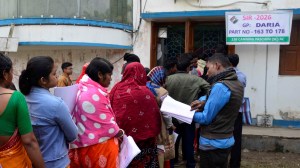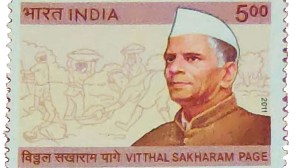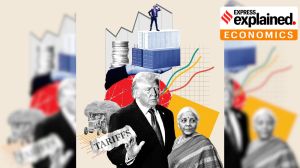Liberty does not bar
The system of private property is the most important guarantee of freedom, not only for those who own property, but scarcely less for those ...

The system of private property is the most important guarantee of freedom, not only for those who own property, but scarcely less for those who do not: this is a quotation from free market champion and Nobel laureate, Fredrich August von Hayek, who saw property rights as the most important element in ensuring liberty in all spheres of the society 8212; civil, economic and political. Now it is altogether a different story that Hayek shared the Nobel in 1974 with his socialist adversary, Gunnar Myrdal, but the very fact that the Indian government preferred to felicitate Myrdal and ignore Hayek speaks of its complete disregard for liberty which is precisely what our forefathers had fought to secure from the British raj.
This attitude is still a characteristic feature of the government. Take the frequent raids on 8220;illegal8221; dance bars, as an example. The problem of 8220;illegal8221; dance bars, which have mushroomed in various pockets of Mumbai, would not have surfaced in the first place if night life was not banned in India. If nightlife were allowed, talented musicians and dancers would have opportunities to display their talent, more pubs and restaurants would have opened would have been less expensive due to competition and a big market, the liquor and tobacco industry would have flourished, the transport industry would find more customers, and markets for close complements such as cold drinks, peanuts, etc, would have also increased. All this boils down to more job creation, which directly adds to India8217;s wealth. This also shows that the institution of market is quite efficient to generate jobs through the forces of demand and supply if left to perform unhindered from government restrictions.
The government cites enforcement of morality as an excuse to the banning of night life. Here it assumes a patriarchal role to save the nation from moral debasement. But it fails to understand that morality is an innate part of the human being; it is not possible to enforce morality through prohibitionist policies. Such prohibition policies give rise to outlaws and become cash cows for corrupt policemen, politicians, bureaucrats and the mafia alike.
Now let us see how such a problem could have been solved if our Constitution recognised property rights and economic freedom as our fundamental rights. In such a situation property would not only have been privately owned but also controlled by the same owners at all levels of the society. Hence, the bar owner can run his business without any worry of paying either a huge licence fee or bribes because the bar is his private property. The girls who want to come and dance in the bar by their own choice. The people who are visiting these dance bars should also be left alone because they are using their own money to get entertained.
Thus it becomes very clear that if property rights are strictly guarded, then the government becomes limited in its functions. In such a situation, we have no fear from the government because it takes nothing from us, gives nothing to us, and leaves us alone to shape our own lives, communities, and futures. Or, in other words, as Hayek had propounded, property rights guarantee economic freedom and with economic freedom comes prosperity.
To conclude, we should understand that raiding dance bars will not help but on the contrary aggravate the problem in terms of illegal operations and public unrest. A much more sensible way to confront social issues of this kind is through the adoption of liberal policies.
- 01
- 02
- 03
- 04
- 05































